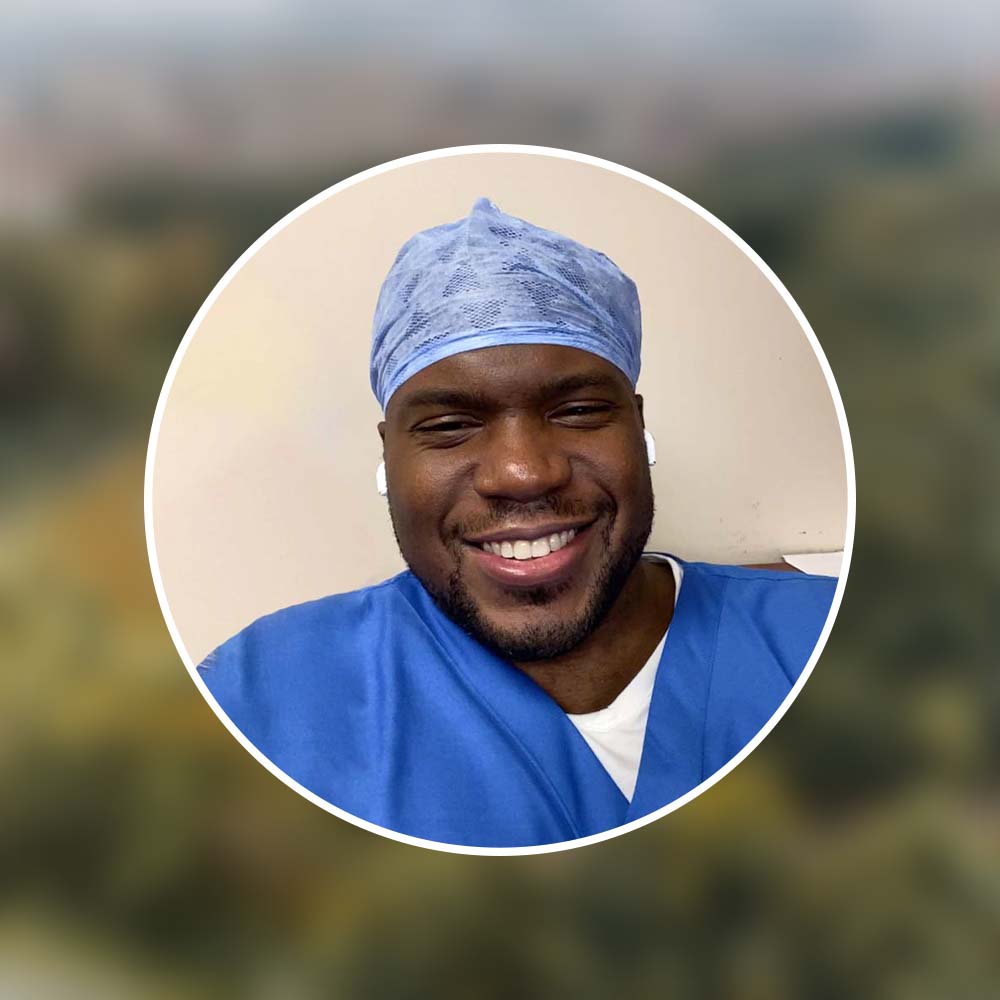
Simply getting into medical school is immensely difficult. For many undergrad students, acceptance is the primary focus. This should come as no surprise as, according to U.S. News, the average acceptance rate is just 5.5 percent. Yet as difficult as getting accepted is, it’s only the first hurdle, and for many, not even the most challenging. That’s why Dr. JeanJacques “Jack” Mbabuike will cover some challenges students might not see coming.
“Every student who gets accepted to medical school has plenty of reasons to be proud,” says Dr. JeanJacques Mbabuike. “Once you get your acceptance letter, feel free to bust out the champagne or celebrate however you prefer. But after the initial celebration, it’s time to start planning and preparing.”
Many students find that medical school starts quicker than they anticipated. Further, even though many medical students have undergone a rigorous undergraduate education, many are still caught by just how fast medical school is and how challenging it can be, even in the opening days.
Medical school combines both in-class learning and hands-on education. While students will still spend time in traditional classroom settings, the speed of teaching is often much quicker. Self-learning and study often prove crucial just for keeping up with the general pace of the class.
One thing that often throws new medical school students off balance is medical terminology. Technical and medical terms provide clarity and nuance. Listen to doctors working in a clinical setting, and they use a lot of terminologies as it allows them to convey specific ideas and concepts. This can prove essential for providing care, as details are important during treatment.
“Some med school students expect to be eased into the terminology, however that’s often not the case,” says Dr. Mbabuike. “Your professors and the doctors you work alongside often expect you to know the terminology already; if you don’t, it can be extremely difficult to keep up.”
Students interested in a medical career should start picking up terminology before applying for medical school. Picking up some terms and definitions now could help students build a foundation that leads to success later on. Anyone who watches TV shows or movies about medicine and often medical terms are tossed around. However, keep in mind that the terminology used may be incorrect. Still, viewers can write down terms and then look them up later to ensure they understand them correctly.
Dr. Jack Mbabuike Urges Occasional Moments of Reflection
Medical school often feels like a whirlwind, with students studying long into the night and constantly busy in class. Often, it’s hard for students to get a breather and to consider anything outside of the school itself. Simply trying to make career decisions, like what specialty to focus on or where to apply for clinicals, can get lost in the noise.
“One thing you often see in medical school is that students are so busy with what’s right in front of them that they can’t properly consider long-term decisions,” notes Dr. Jack Mbabuike. “Then suddenly, a family member or friend asks you what you want to specialize in, and you realize you don’t know. Make the wrong choice, and it could impact you for the rest of your life.”
Med students should pay attention to themselves, their interests, and their emotions while in school and during clinicals. In the day-to-day rush, it’s easy to lose track of these subtleties, but a few minutes of reflecting on experience can yield insights. While med students often don’t have the time to get lost in the clouds, a bit of reflection now could help them avoid problems and challenges later on.
“Many med students enter the program thinking they want to work in a specific setting, say the Emergency Room. But then, they get thrown into that setting, and maybe the pressure is overwhelming, or perhaps the work simply isn’t as engaging as you figured it’d be,” notes Dr. Mbabuike. “Then you take a minute to reflect and realize that working in pediatrics, or whatever else is where you’re the most engaged and fulfilled.”
Given the pace of medical school, students who don’t keep track of long-term decisions may quickly find themselves unprepared yet all but forced to make choices that could impact their entire career and also their personal life. With specialties, residences, and other long-term decisions, it’s wise to spend a few minutes here and there weighing all the facts, experiences, and desires.
Personal Relationships Can Be Supportive or a Strain
One of the biggest hang-ups for medical students, and a challenge that often catches them off guard, are personal relationships with folks outside of med school. Family and friends may not fully understand what med students are going through, especially if they haven’t gone through medical school or something similar. It’s easy to lose touch with friends and family. In some cases, people may be offended.
“As is true for everyone, managing personal relationships is important,” notes Dr. JeanJacques Mbabuike. “For medical students, it’s also especially difficult because time is always in short supply. Before med school starts, it’s wise to talk with your significant other, close friends, and family. Just let them know that you’ll be busy and may not be as social or able to spend as much time with them as you want.”
Personal conversations can be hard, and some may try to avoid them. However, this could result in even bigger problems later, such as serious arguments. On top of that, personal problems can quickly bleed over into studies. Family issues can make it more difficult to sleep. Then, a student tossing and turning in bed the night before may have trouble in class.
On the other hand, those medical students who have strong, supportive relationships with friends, family, and others may find that they have shoulders to lean on. Support goes a long way; even doctors often find themselves needing a helping hand from time to time.

















